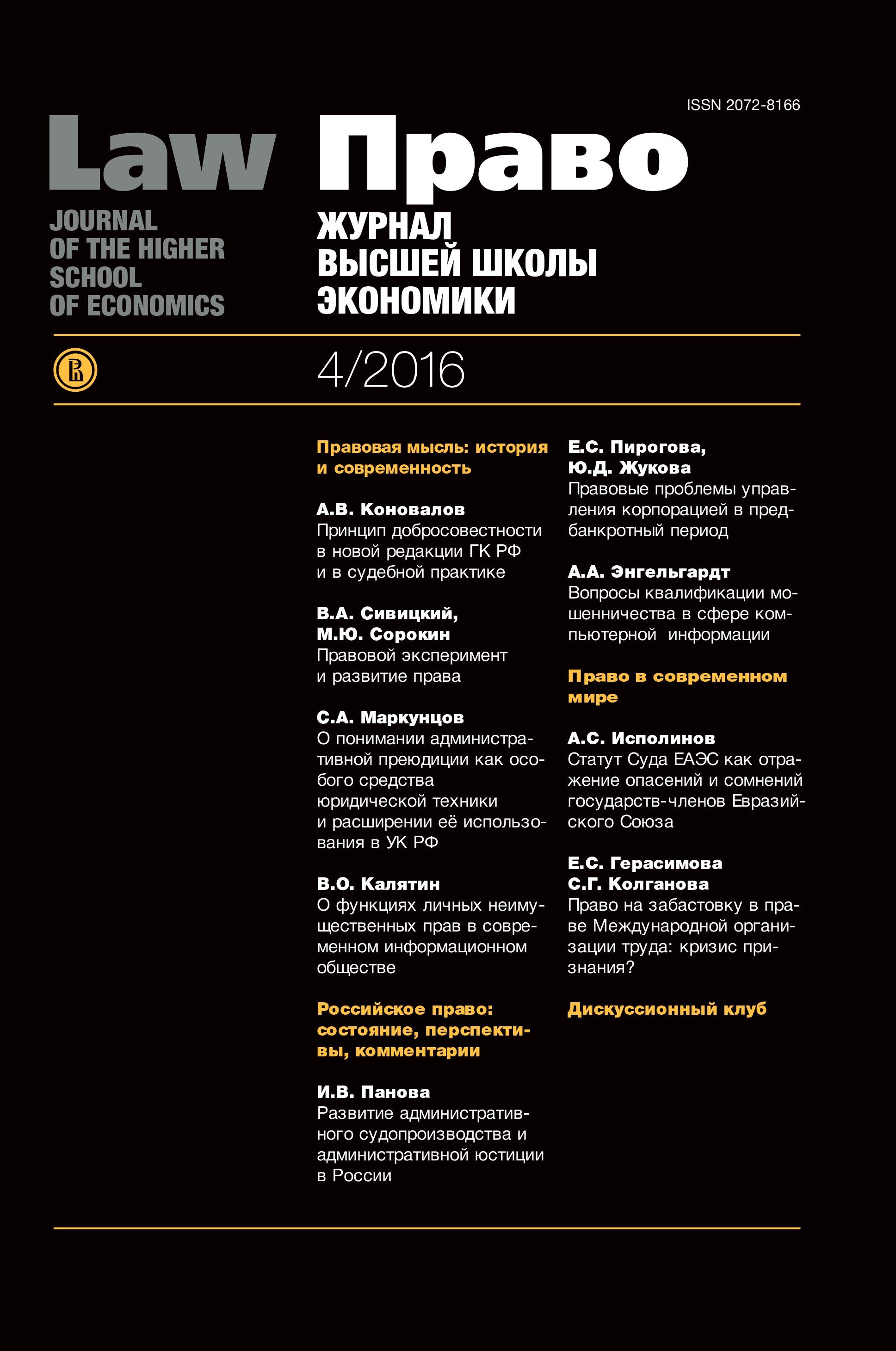Legal Experiment and Development of Law
Abstract
Russia has a certain experience of carrying out the legal experiments according to the formal rules.However, nowadays this form of lawmaking is not used to the full, while it could be useful for makingthe legal system better. There are a number of the situations when the legal experiment shouldbe conducted: if there is no regulation at all; if the current laws are not preventing legal experiment;finally, if a proposed regulatory framework is to repeal the existing laws. We believe that the legalexperiment would be best situated and effective when the present social conditions in an area andrespective laws are considered to be acceptable, but the suggestions are made that modificationof legal rules could trigger a new positive or even groundbreaking effect. In other cases, the legalexperiment would be ineffective or causing negative effects. Besides, there also some conjuncturefactors that may stimulate to use legal experiment. For example, it is a complicated investment situation.It forces to create law institutions can be used to attract investors. To achieve that goal, itwould be sound to use the form of legal experiments unless there will be a political decision to putthat changes into practice in the scale of the whole country. One of the options for the legal experimentcould be a progressive withdrawal of governmental regulation in specific area to give place forself-regulation of the business entities. The other option where legal experiment could be valued isapprobation by the Russian regions of the bills brought forward by their legislatures. Taking a comparativeapproach, we may see legal experiments are now widely used in France. There, they areenshrined into the Constitution and organic law and were several times the issues of constitutionalcontrol. In France, the legal experiments are used as a tool of cutting the red tape.
Published
2016-02-25
How to Cite
SivitskiyV., & SorokinM. (2016). Legal Experiment and Development of Law. Law Journal of the Higher School of Economics, (4), 15-30. https://doi.org/10.17323/2072-8166.2016.4.15.30
Issue
Section
Legal Thought: History and Modernity







.png)









